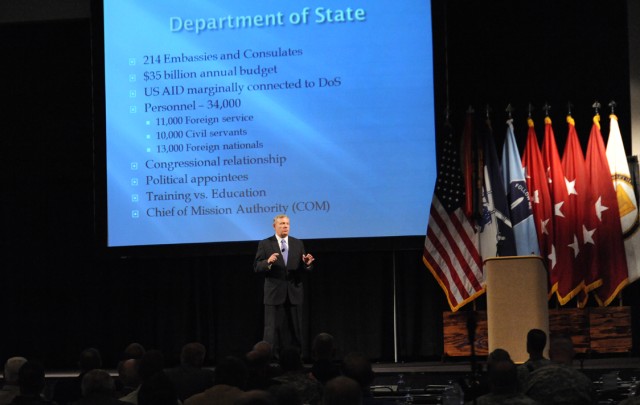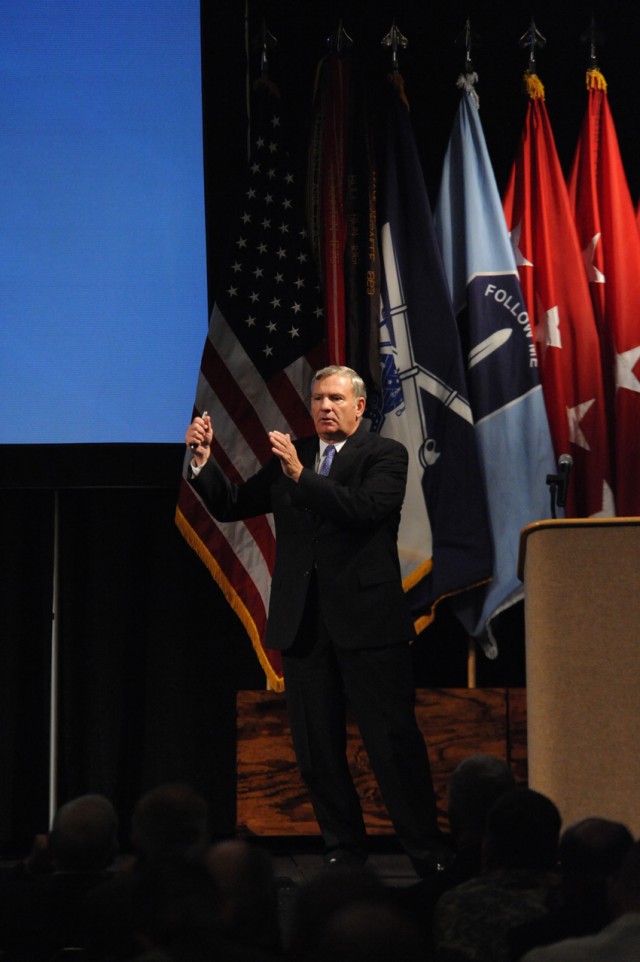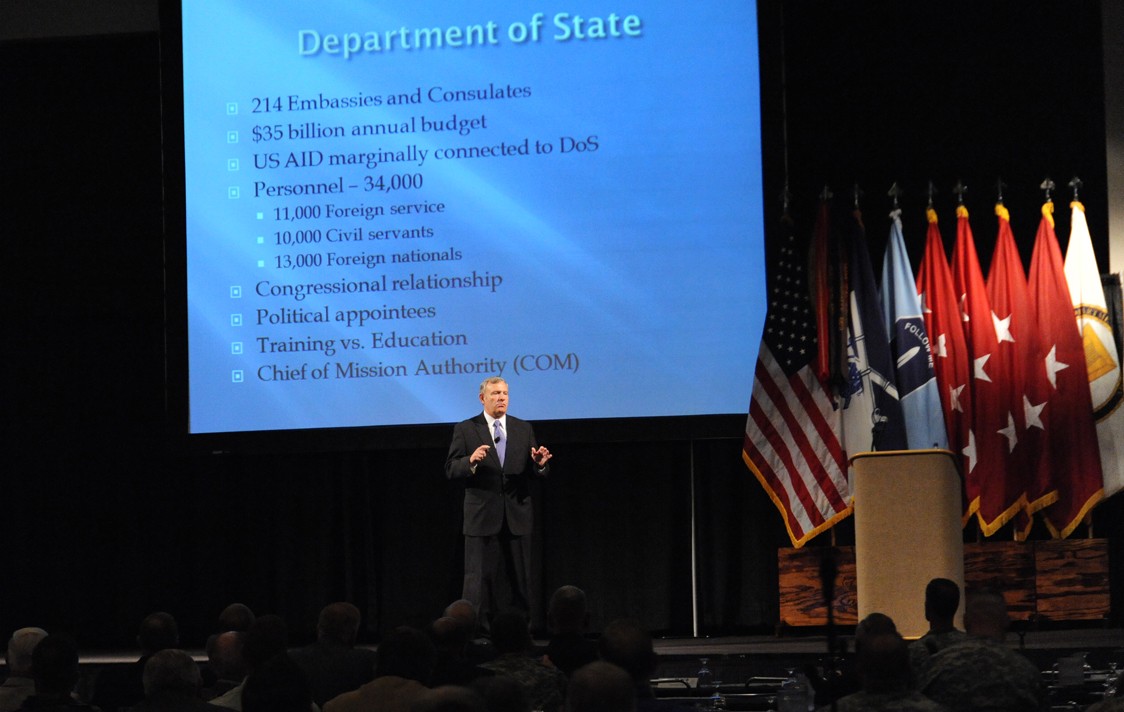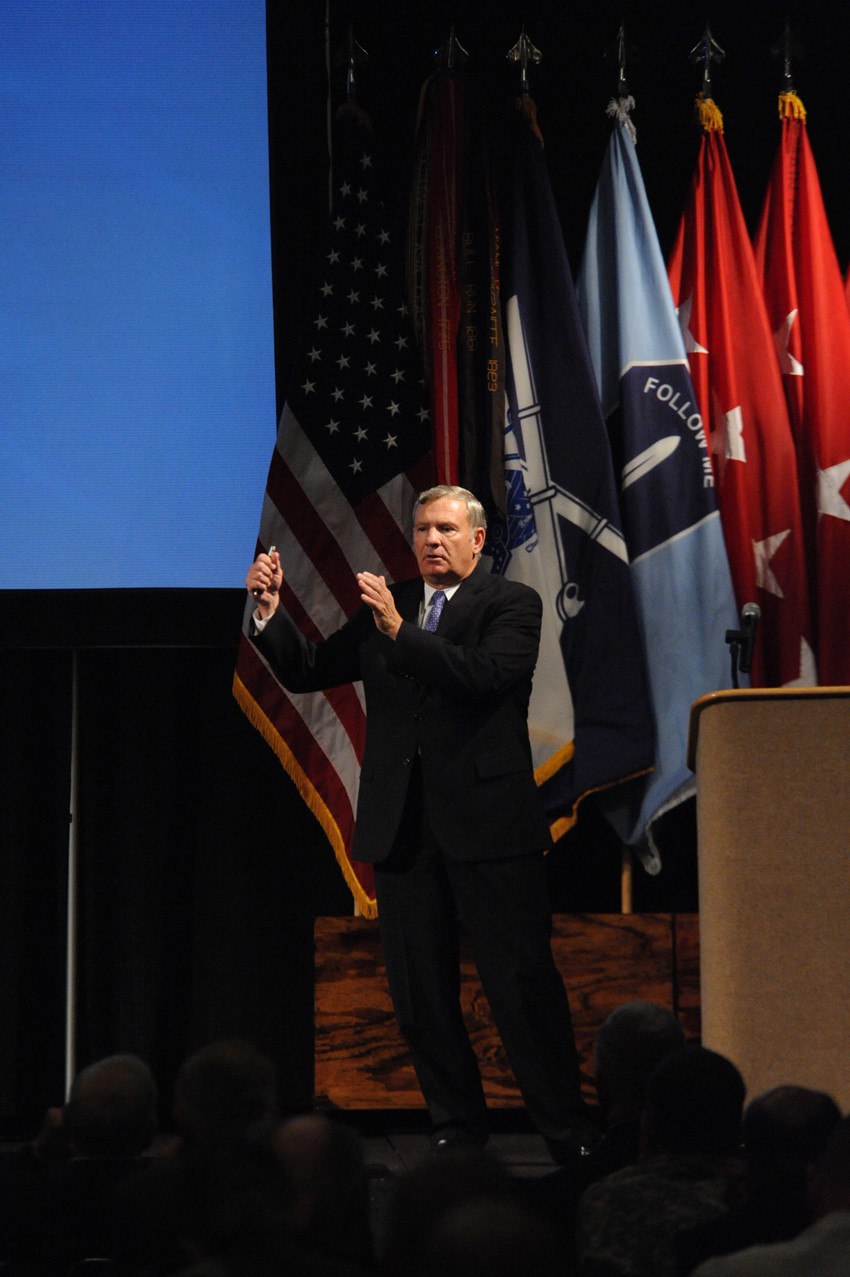FORT BENNING, Ga. - The former State Department coordinator for counterterrorism discussed lingering challenges in Iraq and Afghanistan Wednesday, saying it's important not to abandon political and security objectives in order to avoid a similar fate that occurred in post-Vietnam.
Ex-Ambassador at Large Dell Dailey gave an hourlong presentation and answered questions from the audience to kick off the final day of the Infantry Warfighting Conference at the Columbus Iron Works Convention and Trade Center.
Even when the final 50,000 U.S. troops leave Iraq sometime in 2011 and full control is turned over to the national government, all types of conflict will remain, Dailey said.
"It won't be a box of chocolates," he told the crowd. "But we'll be in Afghanistan much longer than expected."
The U.S. counterinsurgency guide was established in January 2006. As the principal adviser to the secretary of state on international counterterrorism issues, Dailey took a leading role in developing coordinated strategies to defeat terrorists abroad and secure the cooperation of international partners.
Counterinsurgency policy is founded on political, economical, security and informational development, but "it's the society of the host nation that has to rally, not the U.S.," he said.
"It's not just intelligence from the battlefield," he said. "It's influencing the country, international community and the enemy."
He said counterinsurgency success also requires the State Department to seek support from host-nation dissident groups, nongovernmental and private organizations, the private sector and media.
Dailey said Iraq has a history with the rule of law, even if it was "tainted" by corruption and a dubious past. The concept, however, is still new to Afghanistan, which makes the outline of U.S. policy far more difficult, he said.
"We probably have a long row to hoe in Afghanistan, because we're building institutions from the ground up," he said.
Dailey praised the work of Provincial Reconstruction Teams and the boost provided by the U.S. military.
"We got to be able to get out of Kabul with a variety of resources to move this country along," he said. "We will keep relationships on the battlefield strong ... In Iraq and Afghanistan, the group of State Department officers that (Soldiers) deal with on a regular basis will continue for years to come."
For the past six years, the Army has played a major role in Iraqi police training, an endeavor the Department of Defense isn't necessarily suited for, Dailey said.
He said efforts are under way to allow the State Department to pick up a larger chunk of that mission in both Iraq and Afghanistan, which will enhance the U.S. exit strategy and free up the military to focus more on external threats.
The American Embassy in Baghdad, the State Department's largest on the planet, might be downsized in coming years, but U.S. objectives will not be deserted, Dailey said.
"We have the potential for a success story in Iraq," he said, "but we've got a helluva fight left in Afghanistan, not just militarily but for the State Department, too."
Vince.Little@us.army.mil




Social Sharing